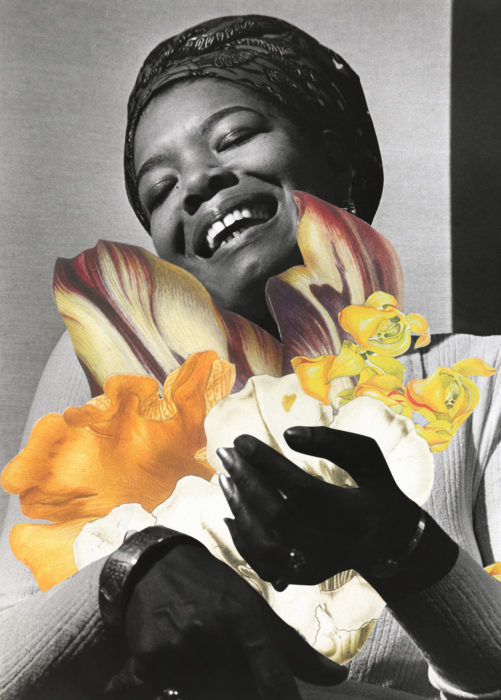
Maya Angelou has been my favourite writer since I first read her poem Phenomenal Woman as an awkward 13 year-old. I had severe eczema over most of my body and her words gave me a sense of pride in just being a woman – I didn’t have to be pretty, being a woman was powerful in itself: “I’m a woman phenomenally. Phenomenal woman, that’s me.”
I’m not the only one. Her poetry and essays are read all over the world. It’s telling that four years after her death in May 2014, Dr Maya Angelou – whose career spanned several decades and professions, including as a poet, author, lecturer and actress – has left behind such a rich body of work that, like turning a diamond stone in the light, you keep seeing new facets and colours in it.
Earlier this year, wondering how I was already feeling close to burnout so soon into 2018, I came across a quote from her that I hadn’t read before: “You only are free when you realize you belong no place — you belong every place — no place at all. The price is high. The reward is great.”
I traced the quote back to a 1973 interview in which Angelou discussed the civil rights movement, feminism, relationships between white and black women, and the courage to live life on your own terms as a woman – belonging to yourself first and foremost.
She spoke eloquently about the strength that the world requires of black women: “The black woman…is asked to be strong, so she’s strong. And she sees how strong she is; she becomes a little bit stronger. And she becomes a bit larger than life…There is a kind of strength that is almost frightening in black woman. It’s as if a steel rod runs right through the head down to the feet.”
Her words still resonate today. Some of the biggest movements rocking the world today were started by black women, such as Black Lives Matter and the #MeToo hashtag.
In the UK, black women are front and centre of a number of important campaigns, such as Marai Larasi, the executive director of the black feminist organisation Imkaan, which campaigns to end violence against black, minority ethnic, and refugee women and girls. Or Phyll Opoku-Gyimah, co-founder of UK Black Pride in 2005, who has drawn attention to the need to abolish the colonial legacy of anti-LGBT laws in Commonwealth countries.
Any woman who raises her head above the parapet is at risk of backlash – black women even more so. Diane Abbott MP, a powerful voice for women detained in Yarl’s Wood and Windrush elders facing deportation, receives more abuse than other female MPs, to the extent that she skews the statistics and her staff cannot report it all.
Cambridge student Lola Olufemi faced racist and sexist abuse after her picture was published on the front page of the Daily Telegraph, simply for being a co-signatory to an open letter to the English department which called for greater inclusion of non-white and postcolonial authors in the syllabus. Meanwhile Gina Miller, who took the government to the Supreme Court for trying to subvert due process in Brexit, has had to hire bodyguards.
Coping with microaggressions
But the majority of us who are not public figures also navigate daily microaggresssions – the small indignities, both intentional and unintentional, that demean people of colour.
In a world with fraught politics on a macro and micro level, self-care is vital. It’s a survival technique; whether you are a campaigner or just trying to navigate challenging work, family, dating or education settings as a black woman.
Marsha, the founder of Eve & Grace, founded her boutique Battersea-based wellness centre with black women in mind: “I wanted to create an inclusive, diverse space, with a clear message of no judgement and a great community vibe. Imagine going to a Boutique Studio owned by a Women of Colour that has a blend of exercise you love on their weekly schedule, the teachers are amazing and they know your name, welcome to Eve & Grace.
She also saw that the sort of disparities in society that have seen black women the group most affected by the government’s austerity policies, for example, are also replicated in the wellness industry:
“Wellness is for everybody; however there is disparity in the wellness industry with regards to Women of Colour being visible, represented visually or seen as leading practitioners. This has had an effect on women of colour feeling like the UK Wellness Industry is exclusive and has resulted in there being a barrier that has resulted in women of colour creating their own spaces.”
Places like Eve & Grace are a haven, but you don’t have to wait to start building a self-care routine. It takes a form as individual as you are, but there are some common themes that many find helpful:
Finding or Building a Supportive Community – at work, college or on Whatsapp, to vent and support one another.
Managing Outside Stimuli – whether it’s taking the odd social media break or skipping the relentless cycle of 24 hour news cycle for a daily news update – prioritise your mental health.
Do something that nourishes and restores you – whether it’s exercise, spiritual practices, travel, painting – pamper yourself.
Belonging to yourself, as Maya expressed it, takes courage. In order to cultivate the reserves of strength and resilience to do that, we need to take self-care seriously.
Words: Kiri Kanhwende
Collage: Lexi Henderson
